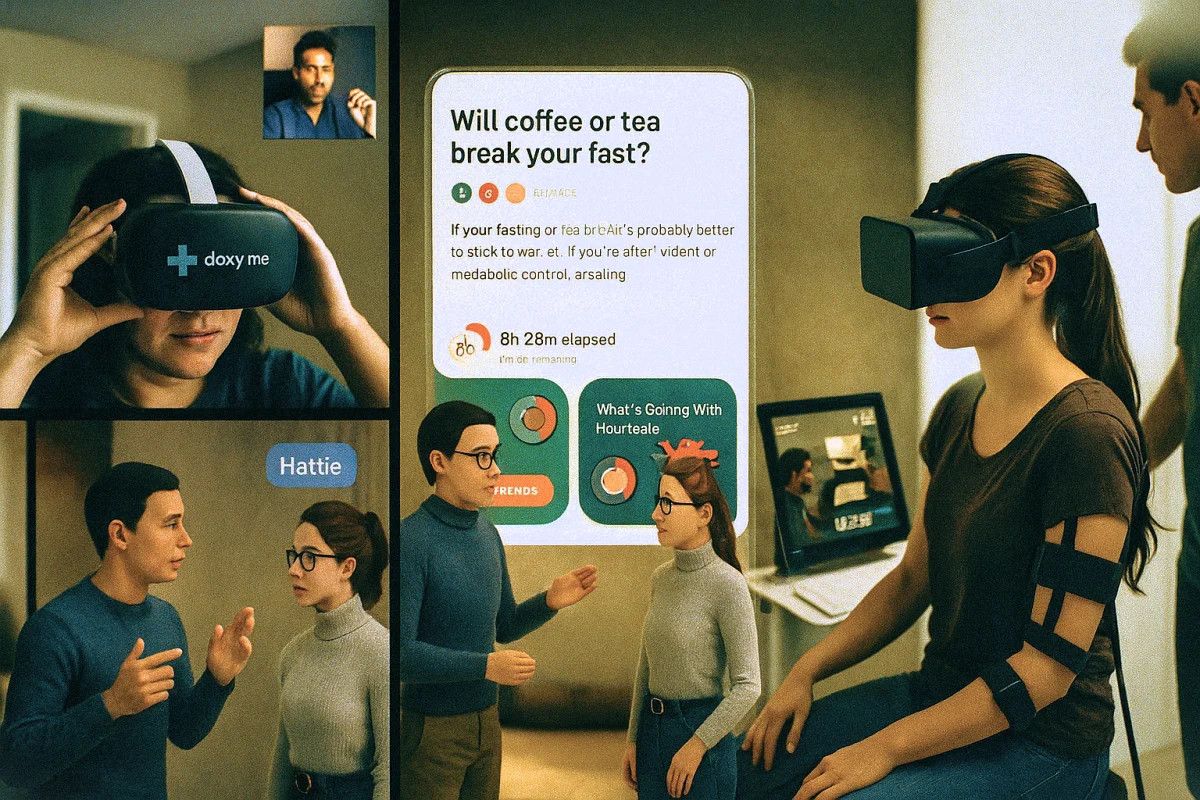Telemedicine and VR Therapy: How Games Are Used in Treatment
In the last decade, healthcare has been transformed by the integration of digital technologies. Telemedicine is no longer just about online consultations with doctors — it now encompasses diverse platforms and apps that allow patients to receive treatment remotely. Within this framework, special attention is being given to VR therapy, where games and virtual reality experiences are applied to both psychological and physical rehabilitation.

The Role of Telemedicine
Telemedicine enables patients to receive care directly at home without the need for in-person visits. For example, people with chronic illnesses can be monitored online and provided with medical advice. In addition, doctors can use game-based apps to simplify communication with patients and track their activity more effectively.
The Potential of VR Therapy
VR therapy is already being applied successfully across multiple fields. In psychological treatment, virtual games help patients confront phobias such as fear of heights or social anxiety. In physical rehabilitation, VR games motivate patients to perform challenging exercises in an enjoyable way, reducing stress and increasing adherence to therapy.
Using Games in Treatment
Games are now recognized in healthcare as therapeutic tools. For instance:
- Physical rehabilitation — motion-based games assist patients in regaining functional abilities faster.
- Psychological therapy — VR simulations reduce stress and help patients develop emotional regulation skills.
- Social interaction — multiplayer games are used to support children with autism in improving social skills.
Health Benefits
Research has shown that VR therapy and game-based treatments boost patient motivation, lower dropout rates, and improve outcomes. Games provide patients with a sense of fun and achievement, making the treatment process more engaging and effective.
Future Prospects
Experts predict that telemedicine and VR therapy will expand even further in the coming years. With the integration of AI, treatments will become more personalized, while games will evolve into full-scale platforms for enhancing both mental and physical health. This trend highlights how technology is shaping the future of healthcare as a new standard of support.
Conclusion
Telemedicine and VR therapy demonstrate that games are not just for entertainment. They are already being used as medical tools, combining innovation, science, and patient well-being. The future of healthcare is moving in precisely this direction.
✍ Article Author
- Registered: 26 July 2025, 15:34




 Silent Cat 🐾
Silent Cat 🐾